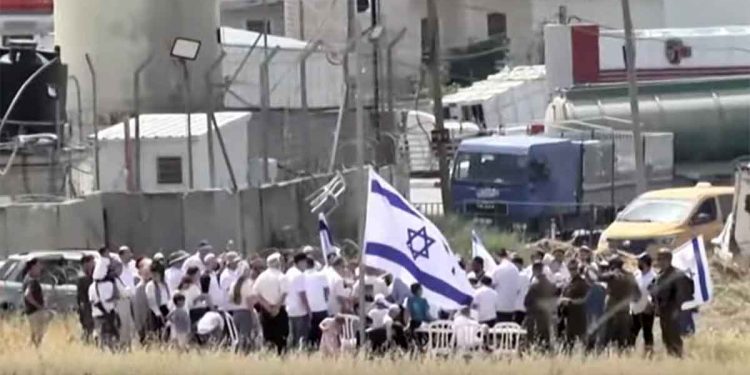Israeli occupation forces have imposed a suffocating siege on the city of Jenin and its refugee camp for the 101st consecutive day, and on the city of Tulkarm and its two refugee camps, particularly Nur Shams Camp, for the 95th consecutive day, amid a total collapse of daily life necessities and a glaring absence of any effective international response to halt the violations affecting all aspects of civilian life.
In Jenin, the aggression has continued since 21 January, during which the occupation forces have turned the camp into an isolated zone, completely closed off to movement and aid, systematically destroying its infrastructure.
Almost every home and facility in the camp has suffered either total or partial damage due to repeated bombardments and bulldozing operations targeting infrastructure. Fears have heightened after occupation forces installed iron gates at the entrances to the camp, further entrenching the isolation of its residents.
Jenin Municipality confirmed that the damage extends beyond the camp, affecting neighbourhoods in the city itself. At least 15 buildings have been demolished, and around 800 residential units have been damaged to varying degrees, particularly in the eastern neighbourhood and Al-Hadaf neighbourhood.
In parallel, residents are facing an unprecedented wave of forced displacement, with estimates indicating that more than 22,000 people have been forced to flee their homes in search of elusive safety.
The situation in Tulkarm is no less catastrophic. The city and its camps, particularly Nur Shams, are subjected to daily incursions and continuous assaults on civilians and their properties.
Last night, occupation forces deliberately set fire to a home, causing a major blaze that engulfed both the house and a vehicle parked beside it.
Each passing day sees worsening suffering under military siege. Entrances are sealed off with earth mounds, entire neighbourhoods are turned into battlefields, and homes are commandeered, their residents forcibly displaced as the buildings are converted into military outposts.
Since the beginning of the siege, 13 residents of Tulkarm have been killed, including a child and two women (one of them pregnant), while dozens have been wounded and arrested. The escalation has led to the total destruction of 396 homes, partial damage to more than 2,500 homes, devastation of commercial establishments and infrastructure, and the severing of livelihoods for thousands of families.
What is happening in Jenin and Tulkarm cannot be classified merely as a security operation; it is a systematic policy aimed at undermining Palestinian life, devastating economic and social stability through siege, demolition, intimidation, and forced displacement.
These violations — including the direct targeting of civilian infrastructure, the use of civilian homes as military bases, and the obstruction of free movement — constitute grave breaches of international humanitarian law, particularly the Fourth Geneva Convention, which obliges occupying forces to protect civilians rather than terrorise them.
The right to housing, freedom of movement, and protection from forced displacement are all enshrined in the international human rights framework. What Palestinian civilians in the West Bank, especially in Jenin and Tulkarm, are enduring amounts to collective punishment, a practice prohibited under international law, and reflects a systematic state of impunity.
Despite these daily realities, the international community continues to remain silent, even as more than 47,000 Palestinians in these cities and camps suffer a renewed humanitarian catastrophe, demanding urgent action to halt this ongoing aggression and to end the state of emergency that has gripped the West Bank for over three months.




























